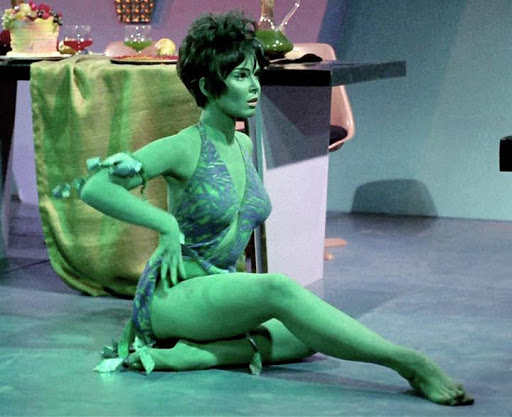I just caught a documentary about Harlan Ellison on Amazon Prime. Called, “Dreams with Sharp Teeth,” this is one of the best in-depth looks at this amazing writer’s career, with some great interviews with him, as well as Neil Gaiman, and other writers, plus some hilarious interplay with Robin Williams. There is no way you can watch this and not feel how important Ellison thinks the written word is, and how much writers should value (and get paid for) what they do.
This fantastic fantasist–writer for “Star Trek,” “The Outer Limits,” and scores of short stories–makes an interesting point about how writers who work for free devalue the art. On the surface, he’s correct. All the publicity of just ‘being seen,’ usually doesn’t matter much for future sales, but there is something to be considered here for the beginning writer. Coming from the high-end of the scale where he was, and having enjoyed his beginnings as a writer when writers could indeed make enough to live on, Ellison is not taking into account the times we live in (not that he could, this documentary was made in 2008) nor the fact that, in some cases, one needs to write for free to build one’s muscle and credits. Professional that I am, I still write for free for plenty of outlets. Why? Well, these places ‘pay’ me in ways that matter to me, while technically not surrendering coin of the realm. So, you will find these instances, be you acquiring product, prestige, or satisfaction working for someone you like and respect and maybe wholly enjoy the work.

From- Star Trek: Sexiest Aliens
The point is, you can be paid in many different ways.
For fiction writers and certainly for fiction writers of niche content (which erotica writing is folks, sorry to say), you will probably have to log some time ‘putting your stuff up’ on websites or into periodicals that simply do not have the cash to pay you. Ellison’s point to a filmmaker who wanted to use an interview he did, but balked when he asked to be paid for it, was that, hey, we go into a store and pay for milk, we can’t go down to the mechanic and get our car fixed without releasing some legal tender, so too do writers provide a product (in this case Ellison’s words about the subject he had been interviewed about) that should be valued.
Again, a great idea in theory, but in the real world, see how well it flies. Hell, if the great Harlan Ellison, arguably one of the greatest writers of the last century, had to fight for coin, where do you think you will end up if won’t ever write unless it is for a monetary payment?
But this is another one of those subjective calls. Only you can determine why one free instance is worth pursuing over another.
When payment does come into it, you will be on the next step up the ladder (and once you get paid for your writing, no matter how little the amount might be, you are then a professional writer, don’t ever forget this!!) you’ll then come to many instances where you will need to determine if the money being offered is worth your labor.
Ironic, isn’t it? We spend so much of our time and worry over hoping to be paid as writers that when the opportunity arises that we might be paid we then worry if it will be enough. Just because you are suddenly at the stage where you can bleed some bucks, don’t suddenly think all your calculations and concerns are over. In fact, they might just be starting…
For instance…
I generally take revision jobs well below what I would usually charge for my original writing (I am not sure if the best way to price a job is hourly, but sometimes I can do this, other times I can’t; another rule here is that you need to be flexible in how you calculate). Anyway, the point I am making here is, although I am getting paid in this instance, I usually come in with a lower price to do the job than I usually would because I know a revision (all things being equal) is generally easier for me than writing something original.

Photo by Mickael Gresset on Unsplash
Another example, from my fiction writing…
I came across a call from an editor looking for 8000 + word short stories. I knew I could deliver and get published in the two anthologies she was creating, as I had an excellent relationship with this editor, and in fact, she had reached out to me hoping to get something, which is always a good sign. Plus, the subject matter of each book fit perfectly with the stuff I like to write. As a side note here, I would end up placing a story in each book (although when the books came out, I had yet to be paid as promised, so a word of caution to even those editors and houses you know well, stuff—certainly payments—can slip through the cracks. Don’t worry; I got paid).
Now, normally, I would have had to calculate the time it would take me to write whole new 8000-word stories (that’s 16 thousand words or more if anybody here is using their abacus) to what this editor was paying. But in this instance, I was lucky that I had a bunch of stuff already written or near finished that fit each book (I told you I write this stuff all the time), so retro-fitting something already written or just adding another 1000 words or so was not a big deal. Therefore, the money offered was undoubtedly worth it. But sometimes you will have to calculate if the time it might take you to do the work is worth what you will be paid for that work, or might take away from other work you could be doing that pays more.
Even if you have an agent out there looking for the best deals for you both, it will always come down to you deciding what’s best for you in each instance.
As I have been advising throughout each installment of this wise and oh-so-Earth-shattering-important column, most of this stuff is subjective. You need to do you best you can.
I don’t like to disagree with dearly departed Mr. Ellison, but sometimes you just ain’t gonna get paid, but sometimes that’s perfectly ok.
Featured Image by maitree rimthong from Pexels































